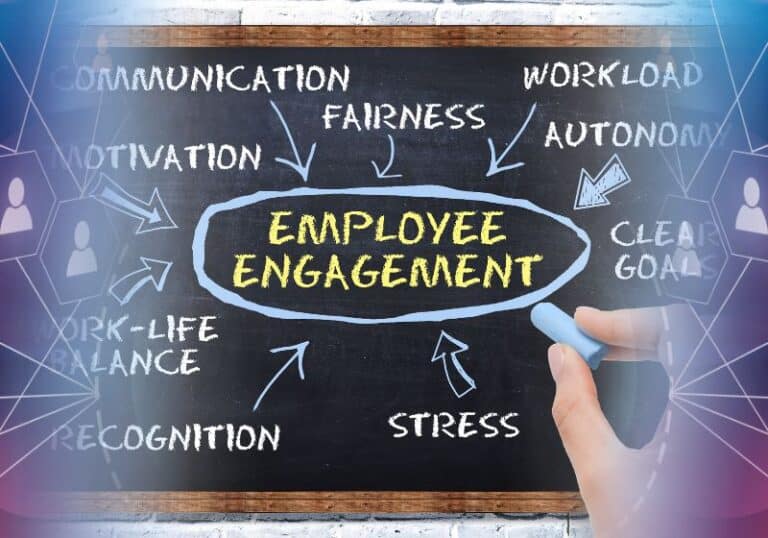What Are An Employers Obligations for Bereavement Leave

This month, we continue our conversation with Nita, our expert HR consultant, as we explore the sensitive topic of bereavement in the workplace. Whilst it is not a topic that often arises, more recently we have seen an increase in calls from employers who want to support grieving employees but are unsure of the best approach. Whether it is a loss of a child, parent or someone near and dear such as husband or wife, a common question we hear is, “How can I provide meaningful support to an employee who has recently experienced a loss?”
I sat down with one of our senior HR consultants, Nita, to discuss the best practices for supporting bereaved employees, from having a compassionate bereavement policy in their handbook to creating a workplace culture that respects and accommodates grief. Nita shares invaluable insights into how employers can navigate this delicate aspect of employee well-being.
Nita, as an HR expert, you have worked with countless companies through difficult situations, including supporting employees dealing with bereavement.
How does bereavement impact the workplace?
Bereavement affects not only the individual but also the broader workplace environment. When an employee loses someone close, their productivity, focus, and overall well-being can be deeply affected, and this can extend to their colleagues and even their direct managers. Grief is not a one-size-fits-all experience, and the support needed varies by individual. Grief is such a personal matter. It is essential that businesses recognise this impact and create an environment that respects and accommodates the grieving process.
How should employers handle an employee’s immediate absence due to bereavement?
First and foremost, empathy is key. Employers should approach the situation with compassion and allow the employee some flexibility in terms of leave. Legally, in the UK, employees are entitled to bereavement leave under certain circumstances, such as the loss of a child, but companies can and should offer additional leave when appropriate. Employers should offer immediate time off, ideally with pay, and communicate support, ensuring the employee knows they can return when they feel ready.
What policies can companies put in place to support employees who are grieving?
Establishing a compassionate leave or bereavement policy is a proactive step every company should take. A good policy should include guidelines on leave entitlement, financial support, or flexibility options. It’s also helpful to outline any additional resources, like access to counselling services or employee assistance programs (EAPs), which can offer vital mental health support. Bereavement policies also demonstrate a company’s commitment to employee well-being, which is essential for a supportive workplace culture.
You mentioned counselling and EAPs. How can these resources benefit a grieving employee?
Grief can be an isolating experience, and many people feel pressure to ‘get back to normal’ before they are ready. EAPs offer confidential support and can connect employees with professional counselling. Talking to a counsellor helps people process their feelings in a safe space, which can make returning to work more manageable. EAPs also often include resources for practical advice, which can be helpful when someone is managing not only the emotional impact but also the financial or logistical matters related to bereavement.
How can managers help support employees once they return to work after a loss?
The first step is to have an open, supportive conversation before they return, if possible. Managers should check in with the employee, ask how they would like to be supported, and respect any preferences they have about discussing their loss. Some employees prefer to be treated as normal, while others may need ongoing flexibility. Communication is essential, but managers should also respect the employee’s boundaries and privacy. It is also helpful to create a short-term plan for their workload. This might involve temporarily reassigning some tasks or offering flexible deadlines.
What should co-workers keep in mind when supporting a grieving colleague?
Empathy goes a long way. Small gestures, like offering condolences, giving them space, or letting them know you are there for support if they need it, can make a significant difference. The key is to avoid pushing for details or making assumptions about how they should feel. It is a delicate balance, but respect and thoughtfulness are appreciated by most people who are grieving.
How can workplace culture play a role in supporting bereavement?
A workplace culture that prioritises empathy and mental well-being naturally makes it easier for employees to handle difficult life events like bereavement. If a company encourages open conversations about mental health and well-being, employees will feel more comfortable reaching out for support. By promoting mental health awareness and being proactive with well-being initiatives, companies can create a more inclusive and supportive environment. Bereavement is a personal journey, but a compassionate culture ensures employees feel supported rather than isolated.
Any final advice for employers looking to improve their approach to bereavement?
My advice would be to view bereavement policies and practices as essential, not optional. Losing someone is a universal experience, and it is one of the most challenging life events someone can go through. Showing compassion through well-thought-out policies and empathetic responses doesn’t just help the grieving employee; it strengthens the workplace as a whole. When people feel supported during their most difficult times, they develop a stronger bond with their workplace and feel valued. It’s about prioritising humanity, which ultimately benefits both the employees and the business.
Our HR advisors are here to help. If your company would benefit from support in creating a compassionate/bereavement policy, reach out to our team for expert guidance. We are here to ensure you offer the most compassionate, fair, and legally sound support for your team.
Nita Joshi
Nita has 20 years of experience working in HR, is a Chartered Member of the Chartered Institute of Personnel and Development (CIPD) and has an absolutely stellar record as an advisor.




